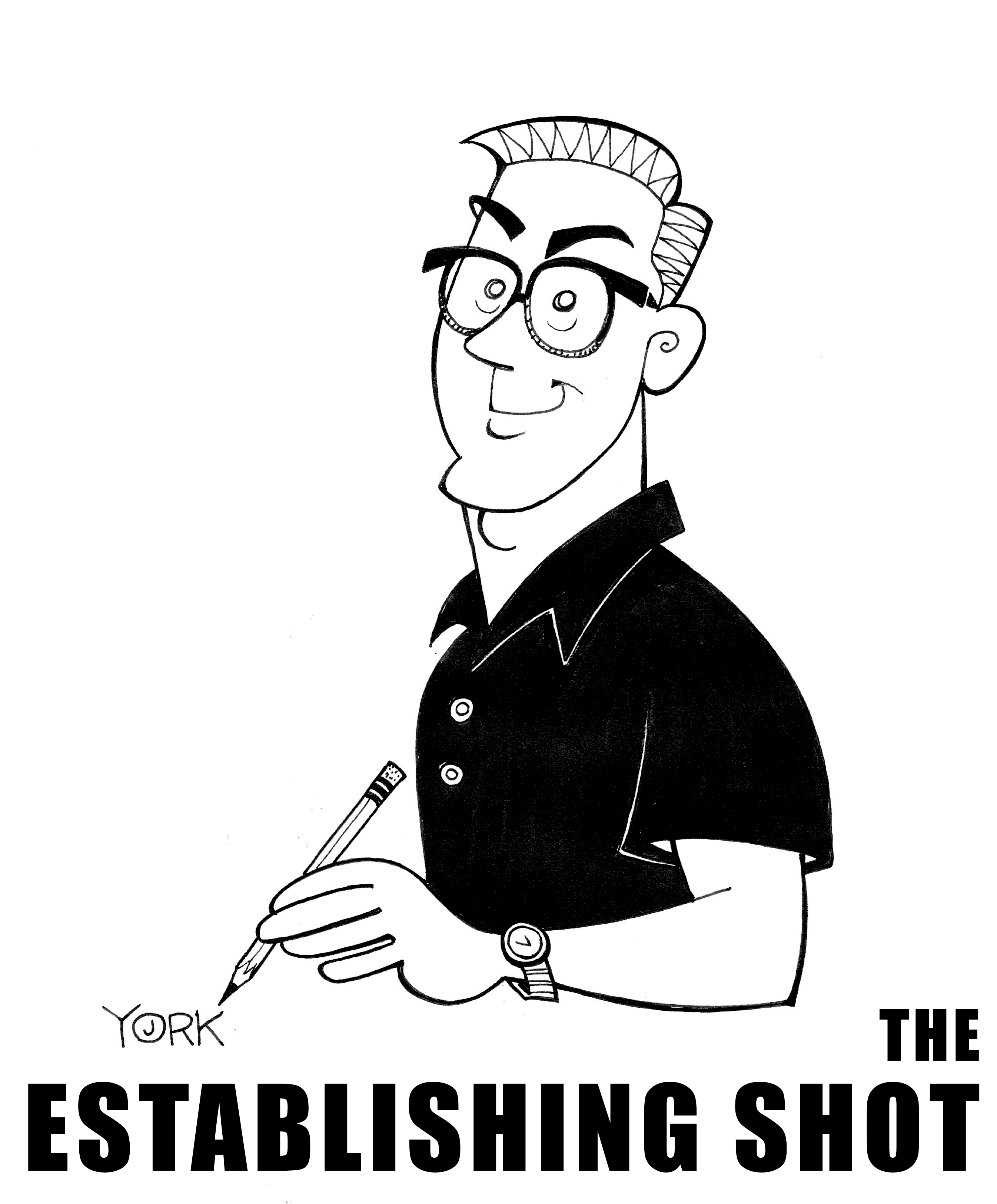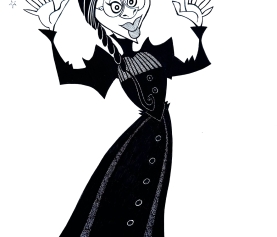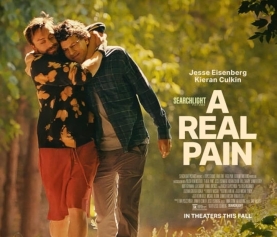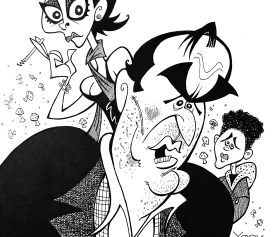
Original caricature by Jeff York of KUBRICK BY KUBRICK (copyright 2020)
If one wanted to do a proper examination of the legendary filmmaker Stanley Kubrick, a 13-hour miniseries – one hour for each of his feature films – would still feel woefully inadequate. The new Greg Monro documentary KUBRICK BY KUBRICK, part of the Chicago International Film Festival slate this year, clocks in at a paltry 73 minutes. In the world of essays, it almost feels like a pamphlet, barely scratching the surface. Still, the saving grace is that it fills its all-too-brief running time with Kubrick’s own voice. Here, for the first time, one can hear the man himself describing his oeuvre, his process, and his influences. They may just be bite-sized morsels, but it’s truly remarkable to listen to the famed eccentric sound so down-to-earth about his craft.
Over the course of Kubrick’s career, any film he produced became an event, a must-see, and very often a landmark achievement. He wasn’t afraid to play with genres too and some will tell you that he created the greatest horror movie (THE SHINING), the standard-bearer sci-fi film (2001: A SPACE ODYSSEY), and even the most spectacular epic (SPARTACUS). And yet, despite all of his popularity and prowess, Kubrick sounds like a humble, hardworking guy here. He can’t even quite say what drives him and what draws him to this story or that. He simply states that he responds to a good yarn just as he hopes the audience does to his pictures.
Such modesty seems at odds with the director who notoriously frazzled Shelly Duvall so during the filming of THE SHINING that it took years before she felt comfortable in front of a camera again. Kubrick defends such choices as multiple takes, like those that drove Duvall to exhaustion, as a way to loosen up the talent and get them to live in the moment, rather than act in it.
Cinematography is also near and dear to Kubrick’s heart because of his time shooting photos for Look magazine in the 50s. Monro presents oodles of his work from that periodical and it links directly to Kubrick’s obsession with lighting and lensing. Kubrick waxes on about using naturalistic light in BARRY LYNDON to reflect the limitations of available light sources during the 18th century. Candlelight was historically accurate, but such low light created many problems on that film’s set. Star Marisa Berenson even amusedly laments how some times the actors would sit for hours during the making of that film, “just to be lit all day by Stanley.”
The interviews with Kubrick driving the doc are courtesy of famed French film critic Michael Cimint. His conversations with Kubrick about craft hale from decades ago, but are being fully realized here for the first time. Additionally, Monro employs backstage clips never before seen, as well as an amazing collection of home movies and photographs from when Kubrick was a child. (The Daily Herald’s film critic Dann Gire appears as well, in not one but two clips!)
Kubrick doesn’t talk too specifically about any one movie or go into great detail about them, but he does pontificate elaborately about preparation. He compares filmmaking to planning battles and admired Napoleon for his painstaking mathematics in devising his skirmishes. Yet, despite such precision, Kubrick admits that his most inspired film moments come from happenstance. He even quotes James Joyce with his famous line about accidents being the portals to genius. (Is that where Bob Ross got it from as well?)
The film whiffs on how Kubrick went from such a practical guy to the eccentric who never shot a film more than nine miles from his home in his later years. What made him so reclusive remains elusive here. Amusing stories about Stanley’s peccadilloes are shared by everyone from Malcolm McDowell to Tom Cruise, but in large part, such motives for the filmmaker’s oddities are left unanswered here.
Ultimately, KUBRICK BY KUBRICK expresses the ideas that every Kubrick film is about the same subject: a calm and obedient civilization that all too quickly devolves into irrationality and violence. Kubrick simply calls it conflict, the drama necessary to make a good story. Indeed, Kubrick’s personal one is a good story, but his films are great ones. And if this fine but slight examination of the man encourages you to seek out his work, then it has more than done its job.







